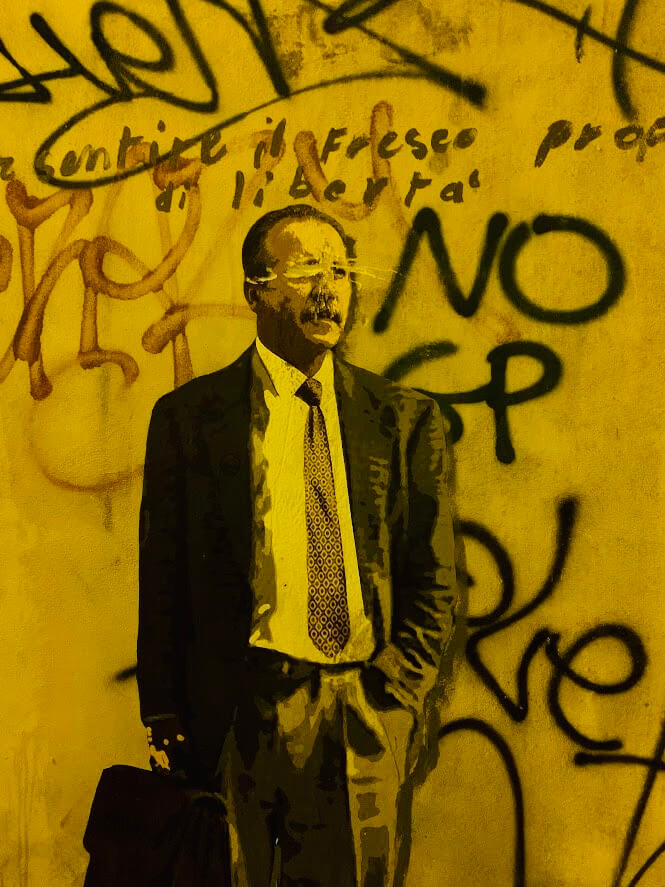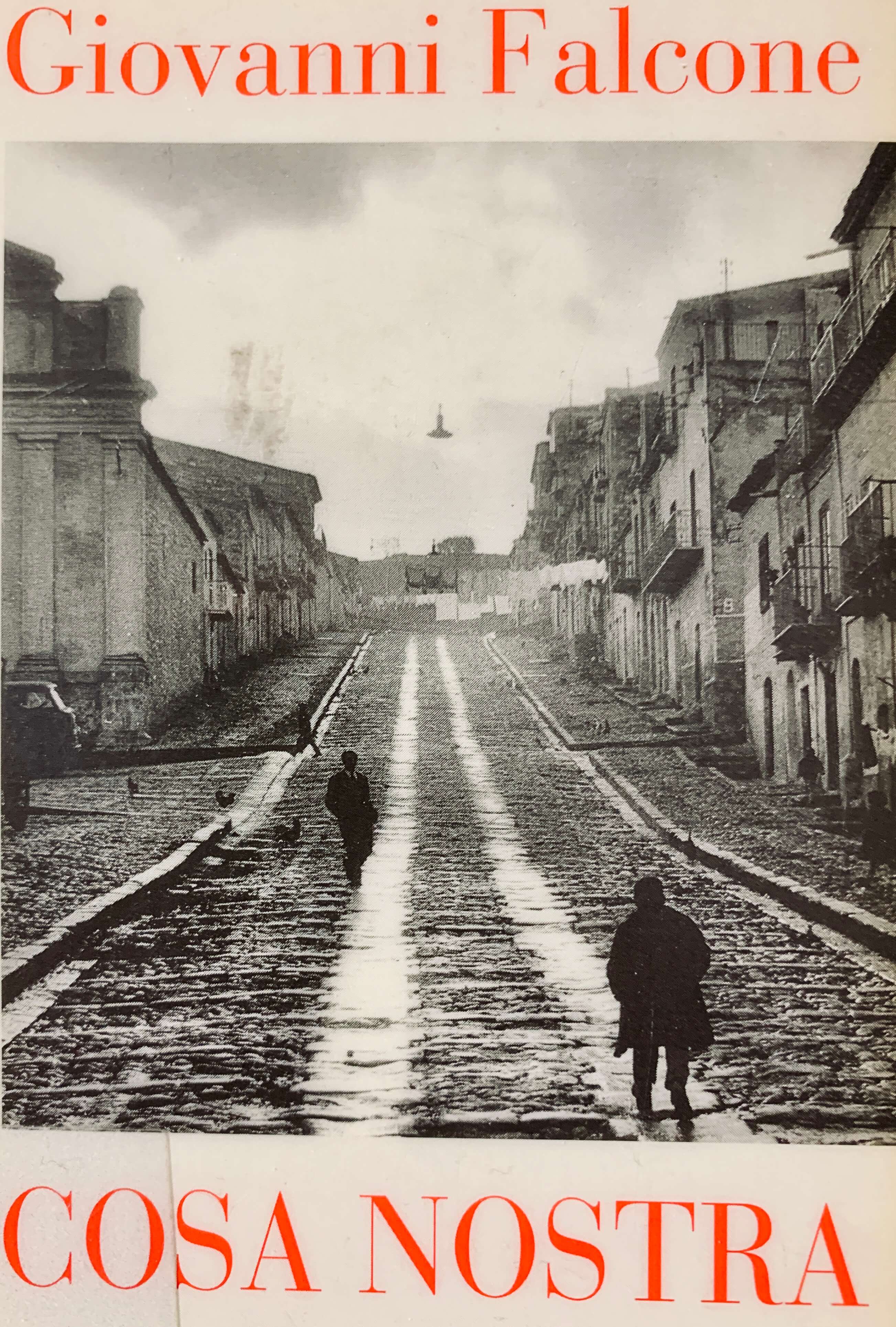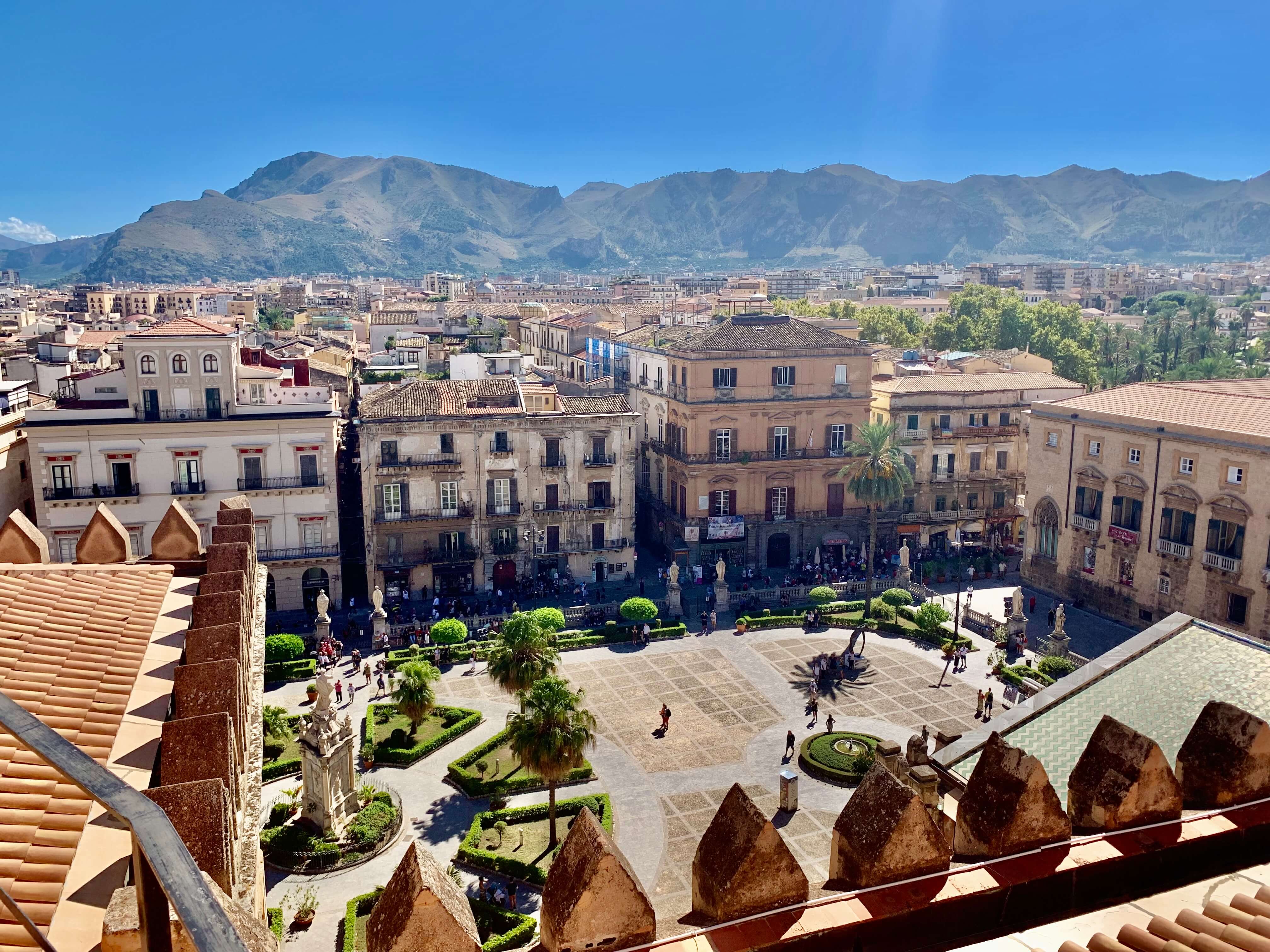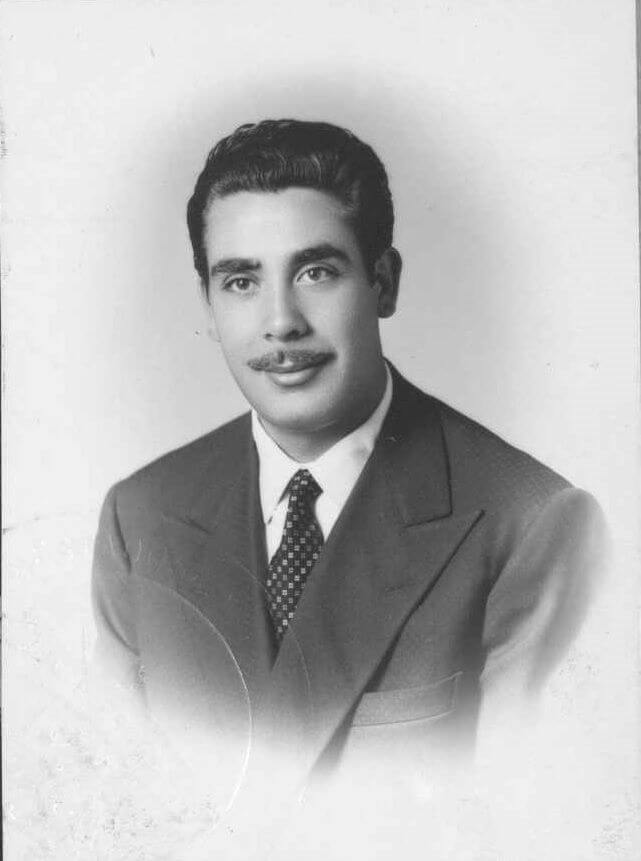- Home
- History of Sicily
- History of the Mafia
- Death of Giovanni Falcone
death of giovanni falcone - Tragic loss for italy
Giovanni Falcone, a leading figure in the fight against the Sicilian Mafia, was tragically killed in 1992. His untimely death sent shockwaves through Italy.
The death of Giovanni Falcone marked a turning point in Italy's struggle against organized crime, ushering in a new era of determination and resilience.
Uncover the sequence of events that led to his tragic end and the profound impact his assassination had on the entire nation.
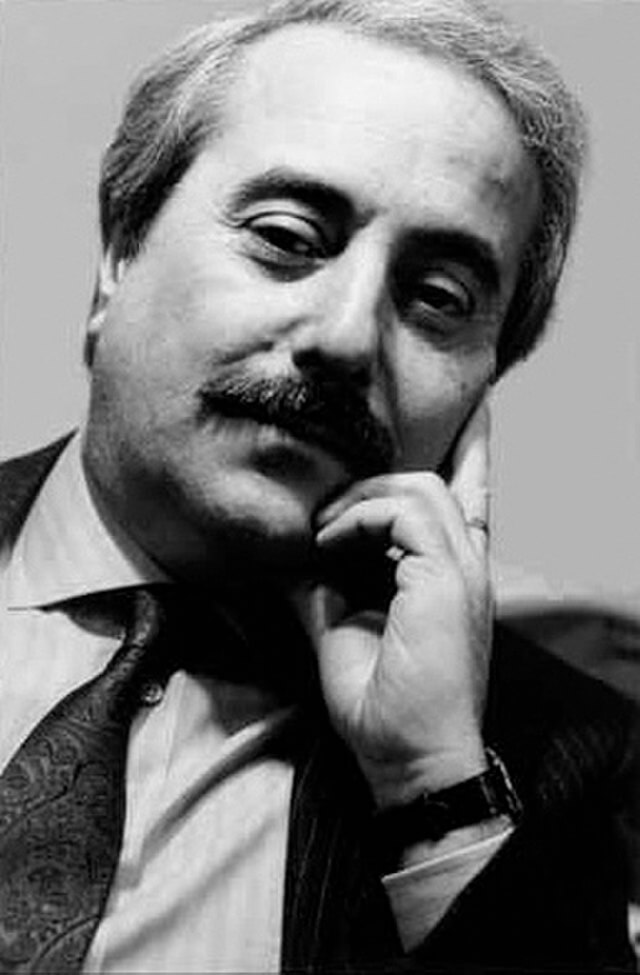 Giovanni Falcone (1939-1992)
Giovanni Falcone (1939-1992)Who Was Giovanni Falcone?
Giovanni Falcone, an Italian judge and prosecuting magistrate, is best known for his unwavering fight against organized crime in Italy.
Falcone was born in Palermo, Sicily, in 1939. His childhood was marked by the presence of the Sicilian Mafia, a.k.a. la Cosa Nostra, as many of his friends later joined this criminal organization.
Falcone, in a courageous act, chose to do the opposite. The values he had gotten from his home made him choose a profession in law, a decision that would shape his life and inspire many.
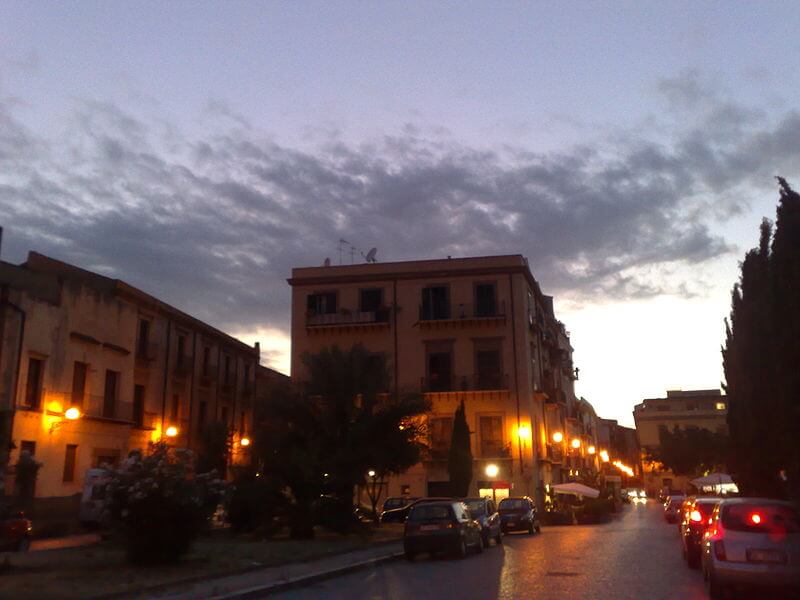 Falcone was born in the Castrofilippo district in Palermo. (Photo: Dedda71 / Wikimedia Commons)
Falcone was born in the Castrofilippo district in Palermo. (Photo: Dedda71 / Wikimedia Commons)Falcone's legal career took off in the 1970s when he began as a prosecutor. His journey was marked by a significant collaboration with his colleague, Paolo Borselino.
With their team of investigators, Falcone and Borselino were instrumental in building strong cases against some of the most prominent members of Cosa Nostra.
Falcone's foresight and strategic thinking also played a crucial role in creating Italy's witness protection program. This program was not just a necessity, but a lifeline, without which the actions against the Sicilian Mafia would have remained incomplete.
Falcone's methods were truly unprecedented. His approach to combating the organization was a groundbreaking departure from the norm.
This led to the monumental Maxi Trial in the 1980s, a historic event that marked the largest-scale trial against the Sicilian Mafia in history.
Falcone's methods not only gained him national attention but also reverberated internationally. His relentless pursuit of justice made him a figure of global significance.
His dedication to fighting organized crime led to his assassination in 1992.
After the initial shock, Falcone's murder inspired renewed efforts to fight against the Mafia and bring those responsible to justice.
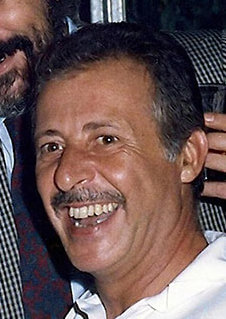 Falcone's fellow prosecutor, Paolo Borsellino, was killed less than two months after him.
Falcone's fellow prosecutor, Paolo Borsellino, was killed less than two months after him.The Mafia's Grip on Sicily
The Mafia has a long history in Sicily. Its origins date back to the 19th century, but some aspects of it might go even further.
The organization took its model from the Freemasons. It had a hidden structure and a strict code of conduct. Pretty fast, it also took part in a wide range of criminal activities.
Mafia's "business model" includes extortion, racketeering, drug trafficking, and murder.
 Confiscated drugs.
Confiscated drugs.The Mafia had a firm grip on Sicilian society and politics. Many local politicians and police officers were on its payroll.
Or, at the very least, they turned a blind eye to the Mafia's activities.
Close ties to the Catholic Church further strengthened the organization's power.
All this changed for the better with Falcone, and even more so after his death. It was such a devastating blow to Italy that common opinion turned against the Mafia: Things had to change.
Today, Cosa Nostra is past its heyday. It's not gone, but the actions against it are stronger than ever before.
Falcone's Fight Against Organized Crime
Before Falcone, the prevailing belief was that the Mafia was a loose association of criminals. This perception, fostered by law enforcement and government officials, significantly downplayed the true nature of the organization.
Falcone used to say that the biggest failure in the fight against the Mafia was the underestimation of its intelligence.
Through his interviews with mafiosos, Falcone unveiled Cosa Nostra's secret and highly structured nature. His findings were a stark revelation, leading to the conclusion that traditional law enforcement methods were grossly inadequate in the face of such organized crime.
Falcone and his team invented new investigation methods, including using wiretaps and informants to gather evidence against the organization.
Falcone also understood the global nature of the Mafia, which is why international cooperation was also necessary to fight against it.
Falcone's team worked together with law enforcement agencies in other countries. This way, they could share information and coordinate efforts.
The United States, for example, has a long history of combating organized crime. Somehow, Sicilian law enforcement officials didn't see any need to learn lessons that had proven useful there.
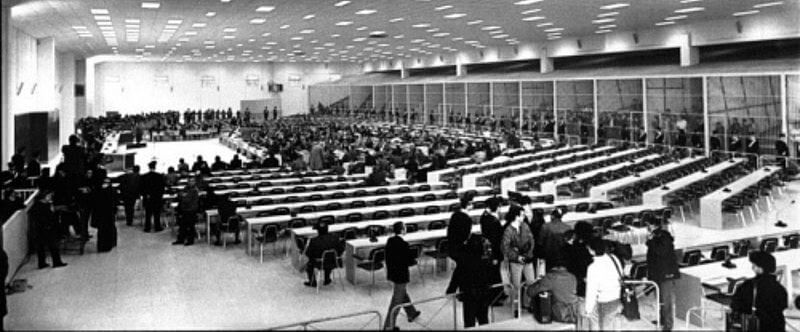 The so-called Maxiprocesso was held at a high-security bunker on the outskirts of Palermo.
The so-called Maxiprocesso was held at a high-security bunker on the outskirts of Palermo.By using these new tactics, Falcone and his team managed to convict 338 members of the Sicilian Mafia in the Maxi Trial, which took place from 1986 to 1987.
It dealt a significant blow to the organization's power and influence.
Falcone continued to fight relentlessly against organized crime until his untimely death in the bombing in 1992.
The Bombing on the A29 Motorway
Cosa Nostra carried out the bombing on the A29 motorway which resulted in the death of Giovanni Falcone. With him, the bomb killed his wife and three police officers.
The bombing happened near the town of Capaci. The Corleone Mafia had planted the explosives in a drainage pipe under the road. The bomb created a crater 10 meters wide and 1.5 meters deep. All five people died instantly.
The death of Giovanni Falcone created widespread outrage and condemnation around Italy. The Italian government answered by launching a massive crackdown on the Mafia.
Also, many of the Mafiosi who had collaborated with Falcone began to share their information more openly. They, too, were devastated by the murder of the man they respected.
All this led to yet more arrests and prosecutions of suspected members and associates of the Mafia.
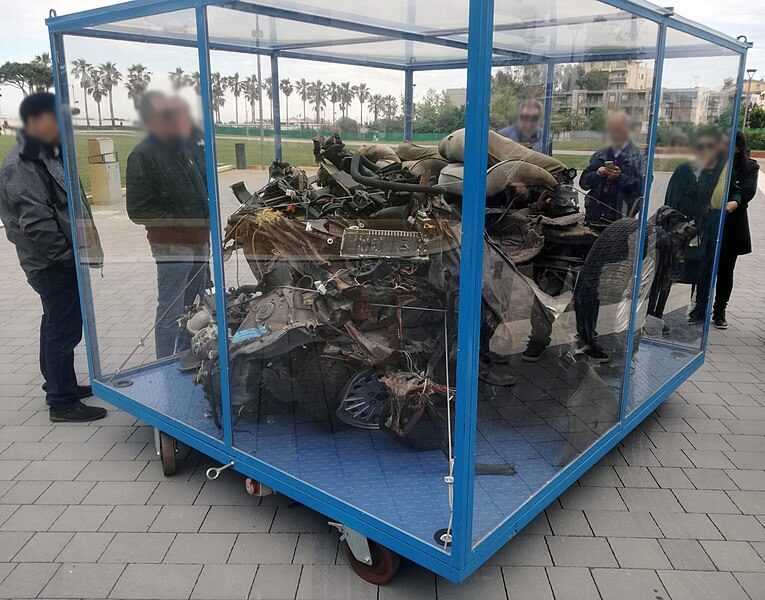 Falcone's car after the bombing. (Photo by Horcrux / Wikimedia Commons)
Falcone's car after the bombing. (Photo by Horcrux / Wikimedia Commons)The Aftermath and Legacy of the Death of Giovanni Falcone
The unity and solidarity of tens of thousands of people who attended Falcone's funeral was a powerful testament to the impact of his death. The death of Giovanni Falcone ignited a collective determination to combat organized crime in Italy.
In the immediate aftermath of the bombing, the Italian government swiftly and decisively demonstrated its unwavering commitment to combat organized crime. Within a year, hundreds of individuals with ties to the Mafia were apprehended and brought to justice.
The establishment of a new witness protection program and the seizure of Mafia assets further underscored the government's resolve.
Giovanni Falcone's legacy continues to inspire and guide the battle against organized crime. His memory, far from fading, serves as a beacon of hope and a model for all those who oppose corruption and criminality.
Today, the Italian government is better equipped to fight mafia-related crime.
Falcone's vision was clear-a weak state is the cause of the Mafia's power. If the state does not execute its power effectively, the Mafia is always ready to take its place. This stark reality underscores the urgency of the ongoing power struggle against the Mafia.
This power struggle is not a thing of the past, but a present reality in Sicily, as in the whole of Italy. It serves as a reminder of the persistence and resilience required in the ongoing fight against the Mafia.
(This page last edited: December 15, 2024)
Recent Articles
-
Sicilian Food - Rich Flavors, Endless Passion
Apr 09, 25 09:54 AM
All you need to know about Sicilian food, its ingredients and history. -
Things to Do in Palermo - Tips for a Perfect Holiday
Apr 05, 25 04:27 AM
Things to Do in Palermo - From historic landmarks to delicious food, this guide has it all. -
The Story of Tommaso Buscetta: From Mafia Boss to Key Witness
Mar 30, 25 05:12 AM
Tommaso Buscetta built Sicilian Mafia into a global empire - which he then destroyed.
Follow MANY FACES OF SICILY on Facebook, Instagram, Bluesky & Pinterest
Contact: vesa@manyfacesofsicily.com
